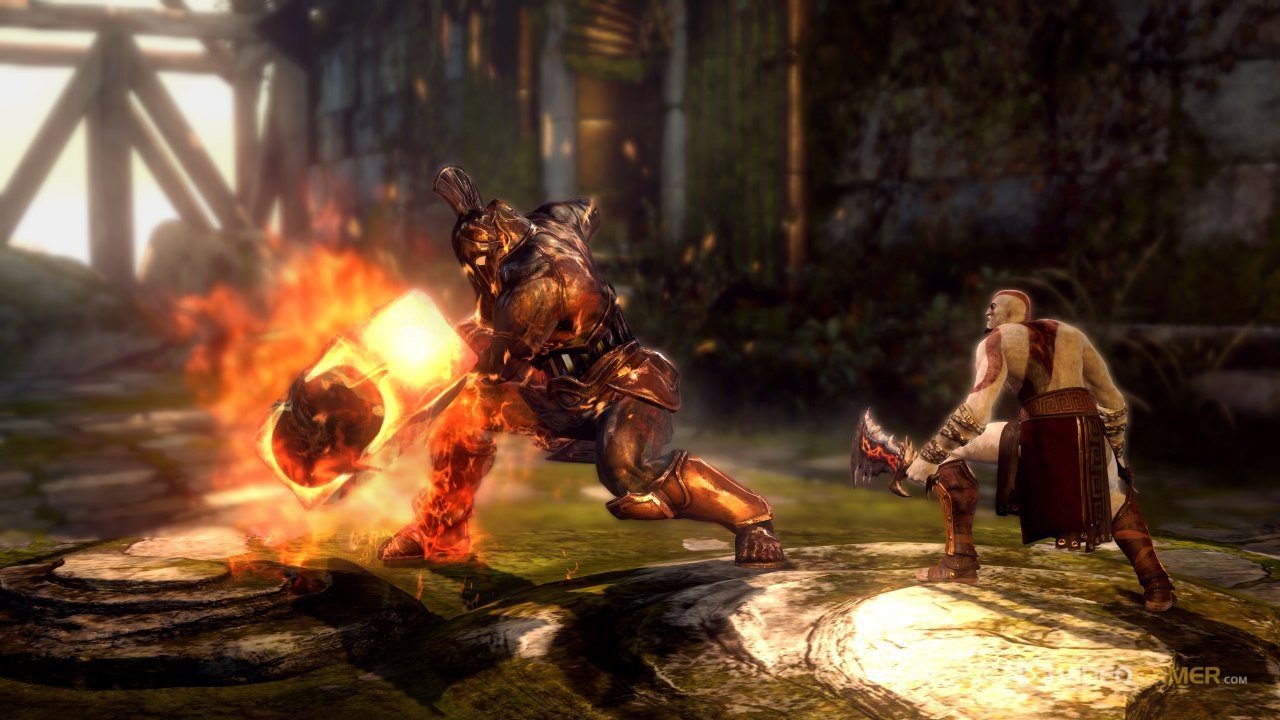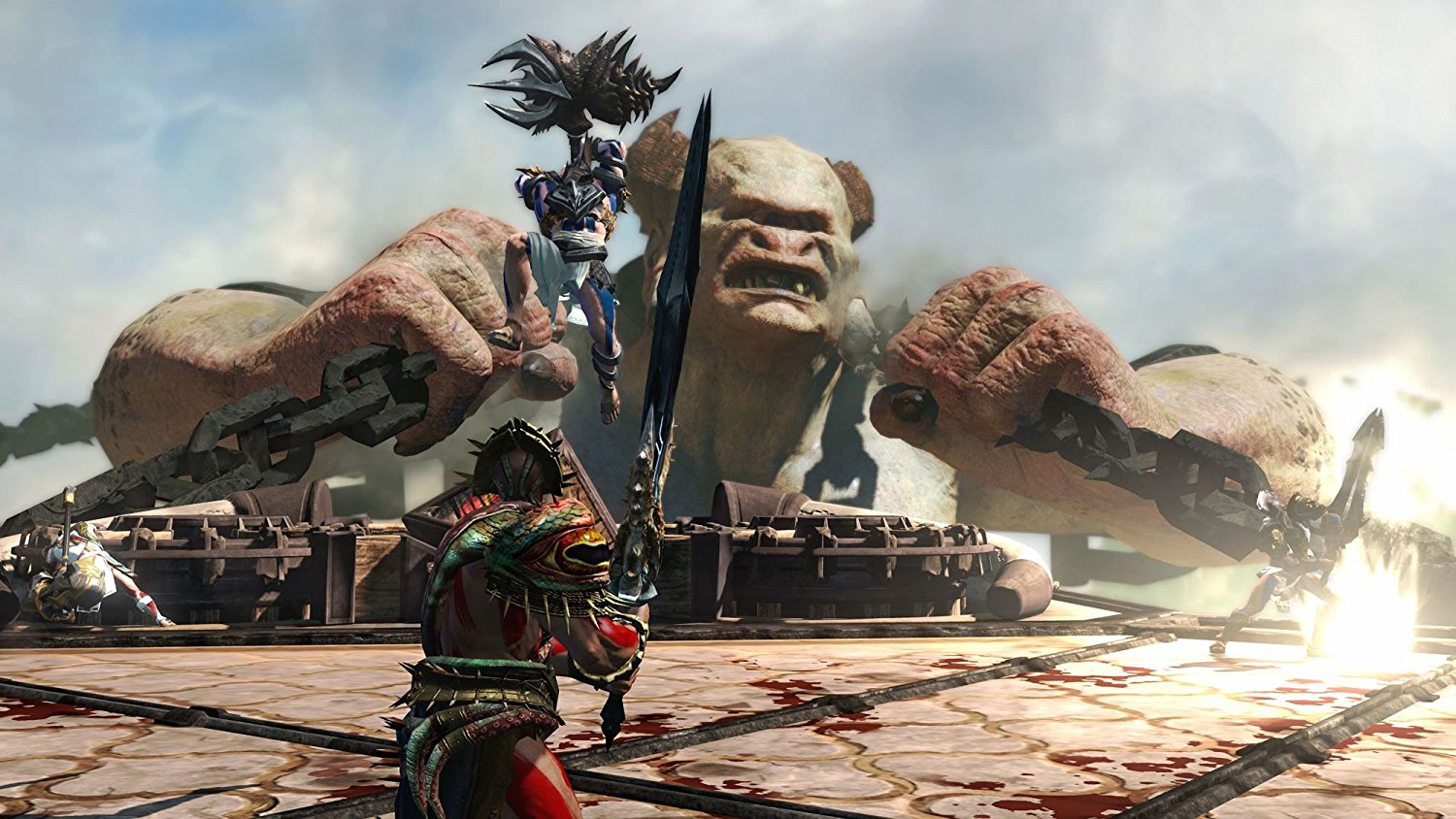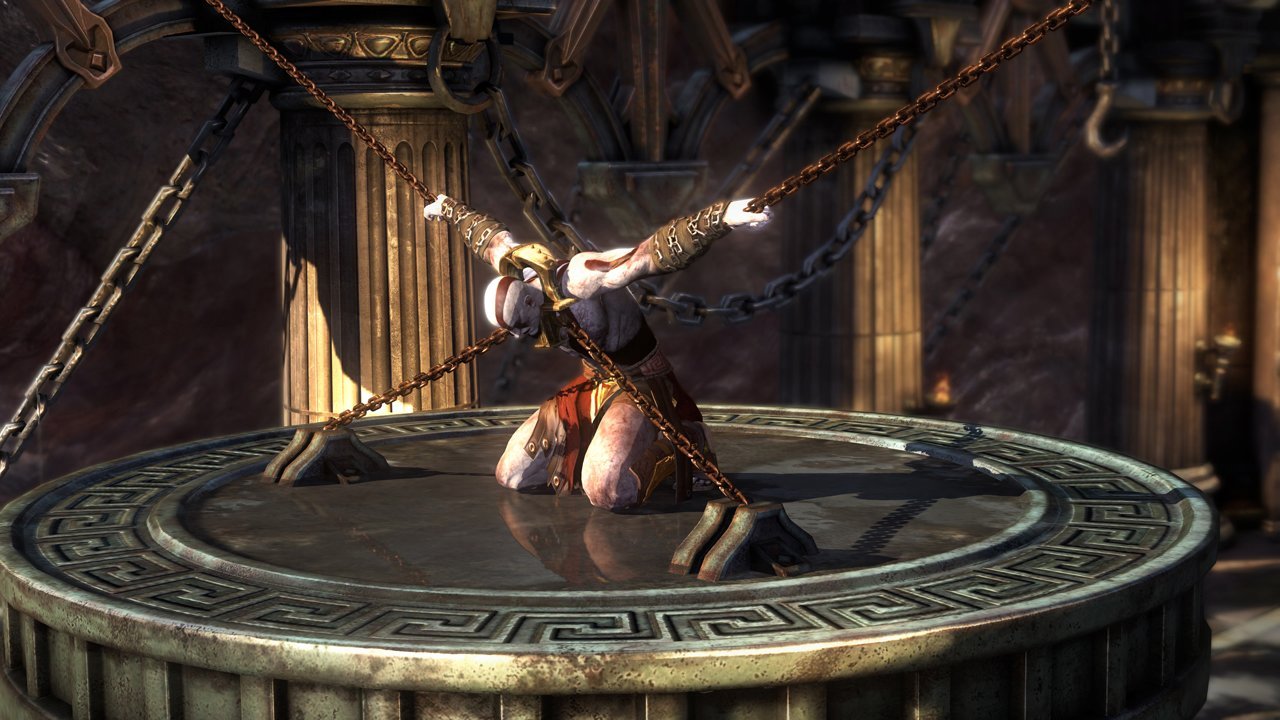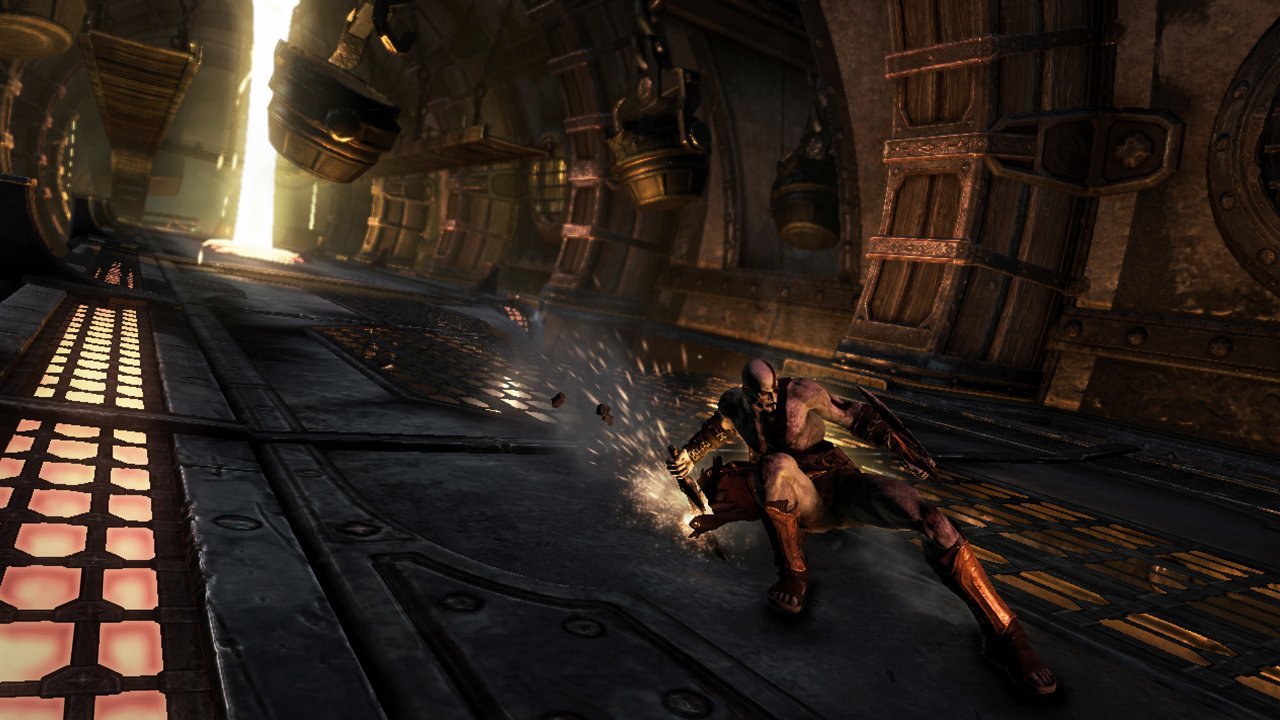Love God of War? There's Still a Multiplayer Community
If the new game has reinvigorated your interest in God of War, you can still jump into God of War: Ascension's underrated multiplayer mode.
Remember when the God of War series experimented with multiplayer? Back in God of War: Ascension on PS3, the series let players compete in bloody brawls with up to eight people.

In spite of some initial skepticism, gamers generally liked what was on offer. Then, they bought PS4s and waited five long years for Kratos' next adventure. Bereft of a player base, the servers quietly shut down — or that's what I thought, anyway.
MORE: Every God of War Game, Ranked
When I logged in to Ascension multiplayer servers, keen to get a long-overdue trophy for completing the tutorial, my jaw just about hit the floor when I realized there were other people in the lobby with me. Yes, God of War's multiplayer community is still alive and kicking. If you want to swear fealty to an Olympian god and savage your foes in a fluid, balletic manner that would elicit an approving nod from Kratos himself, you absolutely can.
Given the gaming community's reinvigorated interest in the God of War series, I imagine there are a few people who will want to at least give this feature a try. Whether or not they'll want to stick around for the long haul, though, will depend a lot on their own tolerance for diving into the deep end of a fairly complex multiplayer arena.

An unexpected discovery
I picked up God of War: Ascension about a year ago on a whim while driving down the Pacific Coast Highway in California with my family. (Incidentally, if you are ever in San Luis Obispo, you've got to check out Cheap Thrills and Captain Nemo, an interconnected record/comic book store that sells everything from Pete Seeger albums to NES games to second-edition Dungeons & Dragons adventures. But I digress.) I had intended to play Ascension at some point before the new God of War came out, but then some other games caught my attention.
But with E3 coming up, I figured that God of War would be the topic of the day, and Ascension was the only game I still needed to catch up on. I blew through about one-third of the game's excellent single-player mode in one sitting and then decided, on a whim, to see if I could still get into the multiplayer servers. Imagine my surprise when I logged right in.
Multiplayer servers shut down all the time. It's sad, sure, but it's just a fact of life. Companies can't afford to keep multiplayer communities active forever, and after a game has had a good few years on the market, a company will quietly withdraw the game from service. God of War: Ascension is not only five years old; it's on a discontinued last-gen system.
Add to the mix that God of War has always been a single-player series and that its one-time experimentation with multiplayer was mostly a curiosity. Sony never released numbers, but it's fair to assume that even at its peak, the game was never aiming to compete with Call of Duty.
But either the game is very cheap to run the Ascension servers, or a steady stream of people are still purchasing new digital copies of the game, because the multiplayer mode still has a steady-ish player base.

Spartan rage
Briefly, here's how the multiplayer mode works: You choose a god of Olympus (Ares, Hades, Zeus or Poseidon), customize a champion and jump into one of five modes. Favor of the Gods has two teams compete, killing foes and collecting items to earn points. Match of Champions has pretty much the same setup, but in a free-for-all rather than teams. Capture the Flag is what it sounds like, while Bout of Honor is a one-on-one match.
Perhaps the game's best mode is Trial of the Gods, which lets players cooperate rather than fight. Either with a friend or by yourself, you can tackle increasingly difficult series of enemies while a clock ticks down at the top of the screen. Killing enemies buys you more time. Conquer all of the enemies for untold riches; fall in combat or run down the clock to end the match in ignominious defeat.
Speaking of rewards, there are plenty to earn in Ascension's multiplayer. Your level and equipment levels increase over time, and you can purchase new skills or upgrade existing ones. Because there are four gods to serve and each one offers wildly different special abilities, you could theoretically fall down a very deep rabbit hole.
Reviewers gave a good rundown of Ascension's multiplayer five years ago, and there's no need to replicate their efforts here. Suffice it to say that the mode combines God of War's fast-paced, beautifully balanced combat with a surprisingly deep customization system and a pleasing variety of ways to play. God of War didn't really need a multiplayer mode, but the one it got was probably the best fans could have hoped for.
I have only one major issue with God of War: Ascension's multiplayer, but it's a fairly significant one: It's a lot more punishing than fun. This isn't due to any inherent flaw in the game design, but rather because a good chunk of the multiplayer community has probably been playing for years. During my week or so with the game, I saw perhaps two other players with levels in the single digits. Level 30 players (the initial level cap) were much more common, and Level 40 players (the revised level cap, implemented after the game's release) outnumbered the rest.
As you can imagine, being the sole Level 1 player in an arena full of warriors with fully upgraded weapons, armor and special attacks is a recipe for disaster. In some matches, I was beyond thrilled if I managed to kill a single opponent — and if you don't kill opponents, you don't gain many experience points. The result is a catch-22, where new players can't compete with the existing powerhouses but can't level up, either, because the powerhouses destroy them too quickly and frequently.
Still, there's some fun to be had in team matches, as well as in Trial of the Gods. Sony doesn't seem interested in shutting down the servers anytime soon, so if you feel particularly driven to get good, you should have some time.

How to play
If you have a PS3 kicking around, the easiest way to play Ascension's multiplayer is to buy a digital copy of the game for $10. If you skipped Ascension the first time around because the game didn't look like a necessary part of the God of War storyline — well, you're right, but it's actually not bad at all. The single-player story feels worthwhile, and the gameplay is as much fun as ever. Maybe Sony was wrong to expect people to pay $50 for this particular adventure, but $10 is beyond reasonable.
(If you went old-school and picked up a used copy, like I did, you'll have to shell out another $10 for an online pass. Remember online passes? Some things are best left forgotten.)
On the other hand, you can also play Ascension and its multiplayer component on a PS4 or PC. You'll need a PlayStation Now subscription (and a pretty strong internet connection), which costs $20 per month or $45 for three months. Admittedly, that's not cheap, but you can stream a few hundred games, including three other God of War titles. Weigh your options accordingly.
As for whether Ascension's multiplayer scene is due for a resurgence, I can't say. After toying around with it for about a week, I'm not dying to dive back in. The multiplayer community is too heavily skewed toward experienced, powerful players. As such, the learning and empowerment curves are extremely steep. In the time it would take me to build up my skills, I could probably complete the new God of War.
On the other hand, if you've already blown through Kratos' newest adventure and wish there were a way to continue your adventures in Antiquity, Ascension is a pretty cheap and entertaining way to do so. Just bring some friends along, if possible. Getting torn to pieces like one of Kratos' mythological foes is less fun than it sounds.
Sign up to get the BEST of Tom's Guide direct to your inbox.
Get instant access to breaking news, the hottest reviews, great deals and helpful tips.
Marshall Honorof is a senior editor for Tom's Guide, overseeing the site's coverage of gaming hardware and software. He comes from a science writing background, having studied paleomammalogy, biological anthropology, and the history of science and technology. After hours, you can find him practicing taekwondo or doing deep dives on classic sci-fi.

